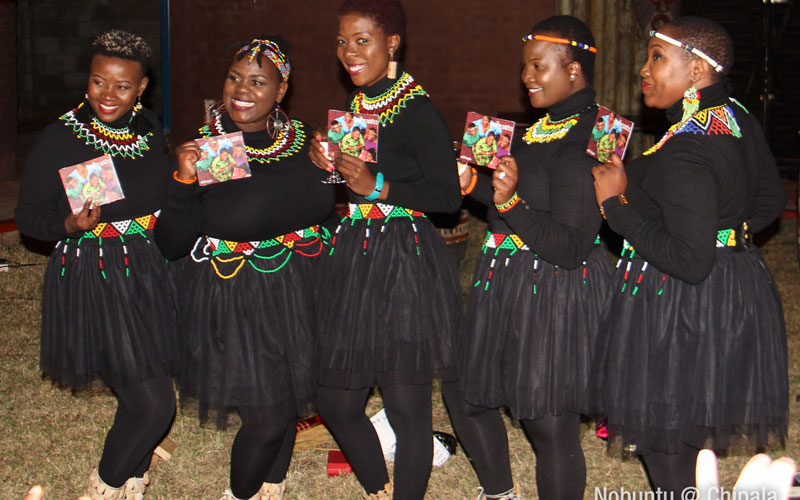
For the past weeks travelling across and out of Zimbabwe, I kept recalling many things that make every place I go to home. I am privileged enough to work with incredible beings such as Nobuntu, whom I toured with across the nation and had a feel of what home is all about. Their second album, Ekhaya surely highlights on so many things I took for granted as a being, and I am sure most of us have done the same. As much as there is no place like home, I have a slight belief that home is you.
Gilmore Tee

In some way, this national tour rejuvenated the importance of clearly understanding the place one comes from and also realising that what makes one are not the immediate things they draw strength from, but their surroundings which contribute immensely to their individuality. With no doubt, we should never run away from the fact that each place is different from the next, I clearly saw that with Bulawayo, Harare and Victoria Falls.
While we might all stay in Zimbabwe, we have different cultures and beliefs in our respective areas of habitat, but we all have common struggles, celebrations and practices. Harare represents the fast pace of being Zimbabwean. Things there are cut throat, but the conversations on the streets and in the kombis are just as familiar as those in Lupane and Gweru. On the other hand, Bulawayo is the cultural hub that has its habitants very creative that in many cases, they do not see how unique they are and just sit on it. At one point I thought Bulawayo was slow, until I went to Victoria Falls. The clean town has friendly faces with outstanding hospitality, but I would not live there because of its slow, laid back pace which reminds me of Senegal. Despite their differences, there is an essence of familiarity, warmth and hospitality.
Before kicking of the national tour for the ladies of Nobuntu, I had been in Cape Town for a week. Growing up, I was taught to thank and greet all the time. This entire system of incarnate has been embedded in me that if I do not say thank you to the cab guy, conductor, vendor or whoever has offered me their assistance, I feel partial. Sometimes we have an attitude of saying; “If I paid, I don’t have to thank anyone”. But if that conductor would have not opened the door for you, you could have invested in extra energy in doing it yourself. It is the simplest things such as the airtime vendor handing you your airtime card, that you should be grateful for. In many cases, some of these little activities are only unique to us and it is the beauty of it all that makes being from Zimbabwe or Africa unique.
While in Cape Town, I clearly remember one of my colleagues saying to me, “Gilmore, you’re street-wise”. I then said to them, “Not at all, as a human being you ought to remember that when you exchange dialogue with people, you are either creating relationships, destroying them or just merely not bothered by them.” I choose to build relationships with whoever I come across, but, if it happens otherwise, c’est la vie (that’s life). Duclin, is one individual I now call a friend in Cape Town. He is the cab driver who used to ferry us from one place to another and because I took time to find out about him and where he comes from, we found a common ground, which was the ability to communicate in French. It took a simple greeting and little conversation to build this relationship. It reminded me of how as Zimbabweans, we always find out which homestead one comes from, that the lady from the market becomes your aunt or the gentleman from the garage becomes your uncle because they are Khumalo.
As long as one has the ability to speak, they are able to bring a part of them to a place that they travel to. Home is not always where you come from, but you carry home with you all the time. It is usually our responsibility as beings to allow people we interact with to feel the beauty of where we come from and who we are through what we do and how we do it.
Sometimes the simple, hawu or hezvo, rings a bell of that place we call home. Home is always with us and we ought to allow people to experience who we are and wish they could be from the same place we come from through the way we speak, dress and just our aura.
- Chamisa under fire over US$120K donation
- Mavhunga puts DeMbare into Chibuku quarterfinals
- Pension funds bet on Cabora Bassa oilfields
- Councils defy govt fire tender directive
Keep Reading
l Gilmore Tee is a social entrepreneur, global citizen, curator, publicist and host who works within the Zimbabwean creative industry, with a strong bias towards fashion. He is the founder of Hunnar Management Agency. Reach him on website: www.gilmoretee.com or Facebook/Instagram/Twitter: Gilmore Tee











